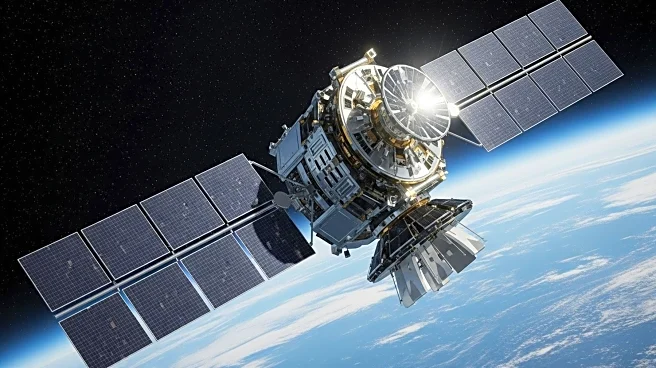What is the story about?
What's Happening?
Germany is significantly increasing its investment in space-related defense projects, allocating €35 billion ($40.8 billion) over the next five years. Defense Minister Boris Pistorius announced the plan at Germany's Space Congress in Berlin, highlighting the need to counter threats from Russian and Chinese technologies. The investment will support the development of offensive space capabilities, marking a historic shift in Germany's defense strategy. Key areas of focus include enhancing satellite constellations, ground stations, and secure launch functions, as well as improving space domain awareness through radar and telescopes. This initiative aims to strengthen Germany's military space functions and prepare the nation for potential conflicts in orbit.
Why It's Important?
Germany's decision to invest heavily in space security reflects the growing importance of space as a domain for military operations. By developing offensive capabilities, Germany seeks to deter potential threats from Russia and China, which have been tracking Western satellites. This strategic shift aligns with broader European efforts to enhance defense infrastructure in response to Russian aggression. As space capabilities become central to national security, Germany's actions could influence other European countries to prioritize space defense in their budgets. The investment also highlights the increasing role of space in geopolitical conflicts, with significant implications for global security and international relations.
What's Next?
Germany's investment in space security is likely to lead to increased collaboration with European allies, particularly in developing a satellite-based missile warning network. The focus on offensive capabilities may prompt diplomatic discussions with Russia and China to prevent escalation in space. Additionally, Germany's efforts to centralize its military space functions within the Bundeswehr could drive technological advancements in satellite systems and cybersecurity. As Germany assumes a more prominent role in space defense, it may seek to establish a dedicated military satellite operations center to manage its space architecture more effectively.
Beyond the Headlines
The shift towards offensive space capabilities raises ethical and legal concerns about the militarization of space. While deterrence is a key objective, the development of anti-satellite weapons could lead to an arms race in space, with significant implications for global security. Furthermore, the reliance on satellite networks for critical infrastructure highlights the vulnerability of modern societies to space-based threats. As countries invest in space security, there is a growing need for international agreements to regulate military activities in space and ensure the peaceful use of outer space.















